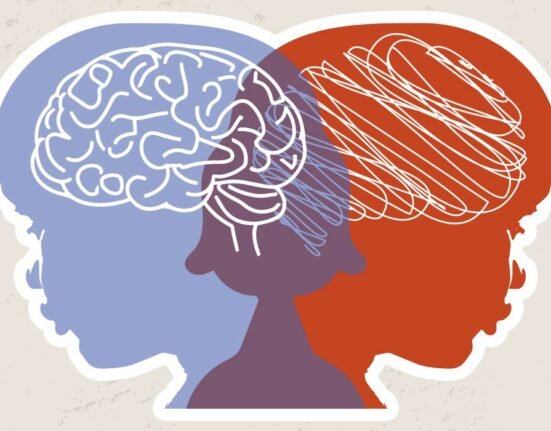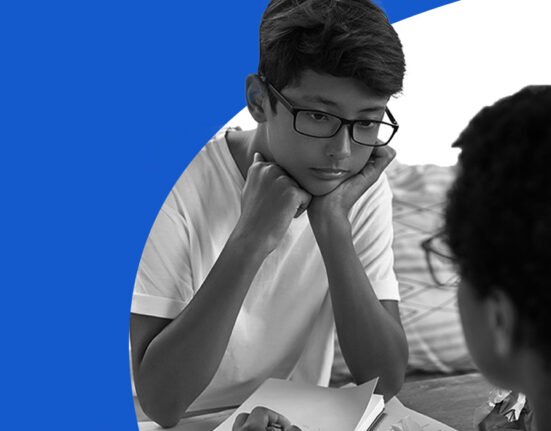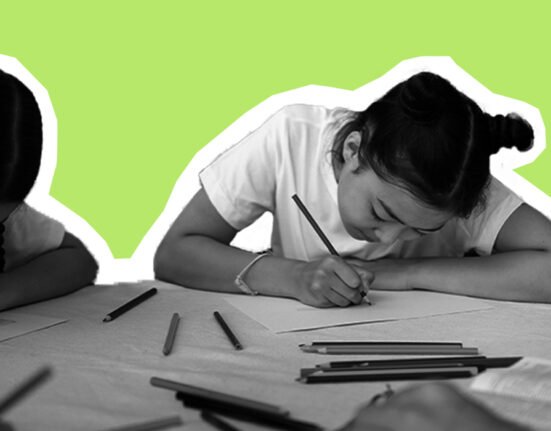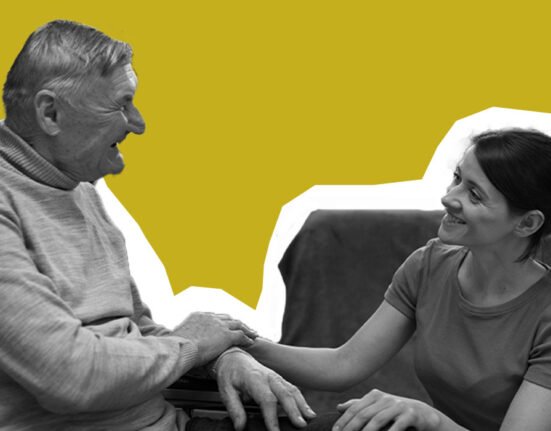Are you frustrated over a small issue at 2:00 AM? And do you want to talk about it with a therapist immediately? AI chatbots come to the rescue for in-the-moment mental health support.
Global Mental Health at a Glance
A research study led by Harvard Medical School conducted a face-to-face survey of more than 1,50,000 adults hailing from 29 different countries with varying socio-economic backgrounds. They found out that one out of every two people in the world may develop mental health issues in their lifetime. According to the World Health Organization (WHO), 7 lakh people kill themselves every year. And 350 million people suffer from depression. 9 out of 10 people with a mental health condition face discrimination and the stigma attached to it wrecks their lives.
The Dearth of Mental Health Workers
WHO released a report which infers that there is hardly one mental health worker per 10,000 people and in high-income countries the rate is 1 per 2000 people. This shortage in low and middle-income countries is one of the many reasons why almost 85% of people with mental, neurological and substance abuse disorders don’t receive any proper treatment.
The report also states that spending on mental health is very low. Even though most mental health issues can be treated at a nominal cost, under-resourcing in our mental health care system leads to treatment gaps worldwide.
This shortage of workforce in this particular sector is a significant barrier to the implementation and scale-up of mental health services. To address this “care gap” the task-sharing method may be fruitful. Task-sharing involves shifting and sharing some elements of delivering mental health services from specialists to non-specialists. Using AI for this purpose could be an effective and innovative solution for early detection and intervention.
AI Steps In
Traditional therapy between four walls and a couch may not be available for a person at odd times when they need it the most. That’s when chatbots step in to give prompt responses helping an individual with evidence-based intervention techniques and psychoeducation. The AI is programmed in such a way as to ask relevant questions about symptoms, monitor, and track progress and also to lend users self-care resources. Chatbots powered by artificial intelligence (AI) are computer programs specially designed to initiate a conversation to provide guidance and support to people facing mental health problems. The increasing demand for cheap and convenient mental healthcare services has made the global chatbot market size valued at USD 0.99 billion in 2022 and is estimated to surpass around USD 6.51 billion by 2032.
AI Trend
The rise in demand is naturally increasing the investment in developing advanced chatbots for mental health and therapy. For example, Wsya Ltd a mental health app company gathered funding of around $5.5 million in 2021. The following year, it raised another $ 20 million to expand its business. Advancements in NLP (Natural Language Processing) and machine learning allow chatbots to interpret, comprehend and continuously learn to improve their responses and make them as effective as meaningful human interaction. Now we have very intelligent and sophisticated chatbots for mental health that can detect our sentiments, analyse mood and give personalized solutions. Some chatbots that have been launched especially for mental health include:
- Psy jai: it was developed to support emotional well-being.
- Replika: it’s widely used for emotional support and conversation.
- X2AI (X2): A chatbot designed to screen for mental health issues and provide support in real-time.
- Woebot: An AI chatbot that offers cognitive-behavioral therapy techniques and mental health support.
- Tess: An AI chatbot that offers emotional support and assesses mental health through user interactions.
- Youper: Utilizes AI to help users track their moods and identify potential mental health concerns over time.
- Qure.ai: Focuses on mental health diagnostics and support using AI, though primarily for healthcare professionals.
- Wysa: An AI-driven chatbot that provides support for anxiety, depression, and stress through conversations and exercises.
- Kushi: fondly called as the “pocket therapist” is exclusively for students’ mental health enhancement. Within just five days of its launch, almost 1000-1500 students exchanged texts with Kushi to vent out while leisurely taking a walk.
All these are fast becoming part of global mental health care.
Replace or Enhance?
As we all know there are plenty of reasons why AI can’t entirely replace a human therapist. Some of the obvious reasons include:
- Data privacy
- lack of empathy
- May lack accuracy
- Inability to comprehend non-verbal cues
- AI doesn’t possess ethical or moral judgment.
- There’s no connection and depth. Lacks in rapport building.
- Lacks flexibility and intuitive capabilities of a human therapist.
- May have potential biases due to the lack of cultural sensitivity.
Despite these limitations, AI does have some strengths that human therapists and people can make use of.
AI chatbots offer a confidential and purely non-judgemental environment which gives a safe space for people to share their concerns without any hesitation. They can easily overcome their fear of the stigma associated with mental health and type their symptoms openly without holding back. Natural language processing (NLP) comprehends and initiates conversation to provide real-time assistance, and coping mechanisms, and refer to a professional or other services. It increases awareness by providing timely psychoeducation.
These mental health tools help to manage symptoms of stress and depression at least a little. Earkick is a panda-shaped algorithm that improves mental health in real-time. Earkick’s data shows that people who use the app for about five months report a 34% improvement in mood and a 32% reduction in anxiety. A poll result said, that 80% of people who’d used chatgpt for mental health care found it to be a good alternative to usual therapy.
- Machine learning algorithms can become predictors of developing mental health issues based on patient data.
- AI can help in analysing patient’s electronic health records and assist in diagnosing conditions like depression, anxiety and schizophrenia.
- It can help in watching the patient’s response patterns thereby developing a tailor-made treatment plan.
- Deep learning can help in assessing brain scans to find out if the disorder is because of structural abnormality.
- AI-powered sentiment analysis algorithms can read social media data and give us the public sentiment towards a particular mental health topic. The results can help us plan our awareness initiatives accordingly.
- AI drive apps can track patients’ medication schedule and their side effects which makes it easier for the mental health professional to assess the patient in a much better way.
Although AI is not replacing clinical care, it sure acts as an add-on method for intervention. AI makes mental health easily accessible, affordable and an equitable system to the masses. Don’t we all love cheaper, quicker, unbiased care?! That’s why the advent of AI should be welcomed, and improvised to fight the stigma and normalise the dialogue surrounding mental health.
FAQs
What is AI?
Artificial intelligence (AI) is a set of technologies that enable computers to perform a variety of advanced functions, including the ability to see, understand and translate spoken and written language, analyze data, make recommendations, and more.
Can I use a chatbot to get my diagnosis?
You can use a chatbot to share your symptoms and get an idea. But it’s better to visit a professional as chatbots result may not be accurate and conclusive.
Can I use a chatbot and also see a Therapist?
Yes, you can use AI for tracking your progress and for self-care purposes.
Will I get addicted to AI chatbots?
Chatting for long hours may make you lose touch with reality. So be aware of the fact that it’s an algorithm that fills your void when no one is around you.
Should I follow all the suggestions it gives me?
No. Take what suits you and ignore what isn’t relevant to you.
References +
Towards Healthcare. (2023, July 4). Chatbots for mental health and therapy market size envisioned at USD 6.51 billion by 2032. https://www.towardshealthcare.com/insights/chatbots-for-mental-health-and-therapy-market
https://hms.harvard.edu/news/half-worlds-population-will-experience-mental-health-disorder
Ministerie van Algemene Zaken. (2023, November 10). MHPSS worldwide: facts and figures. Mental Health and Psychosocial Support in Crisis Situations | Government.nl. https://www.government.nl/topics/mhpss/mhpss-worldwide-facts-and-figures#:~:text=Mental%20health%20in%20general,people%20worldwide%20suffer%20from%20depression.
https://www.who.int/news/item/14-07-2015-global-health-workforce-finances-remain-low-for-mental-health#:~:text=On%20average%20globally%2C%20there%20is,is%201%20per%202000%20people.
Endale, T., Qureshi, O., Ryan, G. K., Esponda, G. M., Verhey, R., Eaton, J., De Silva, M., & Murphy, J. (2020). Barriers and drivers to capacity-building in global mental health projects. International Journal of Mental Health Systems, 14(1). https://doi.org/10.1186/s13033-020-00420-4
Bsn, O. B. D. M., RN. (2024, July 3). Why AI will never replace therapists. ICANotes. https://www.icanotes.com/2024/01/05/why-ai-will-never-replace-therapists/#:~:text=So%2C%20while%20AI%20can%20be,emotional%20and%20psychological%20well%2Dbeing.
https://www.ncbi.nlm.nih.gov/pmc/articles/PMC10982476/#:~:text=AI%20can%20also%20monitor%20online,escalation%20of%20mental%20health%20issues.













Leave feedback about this